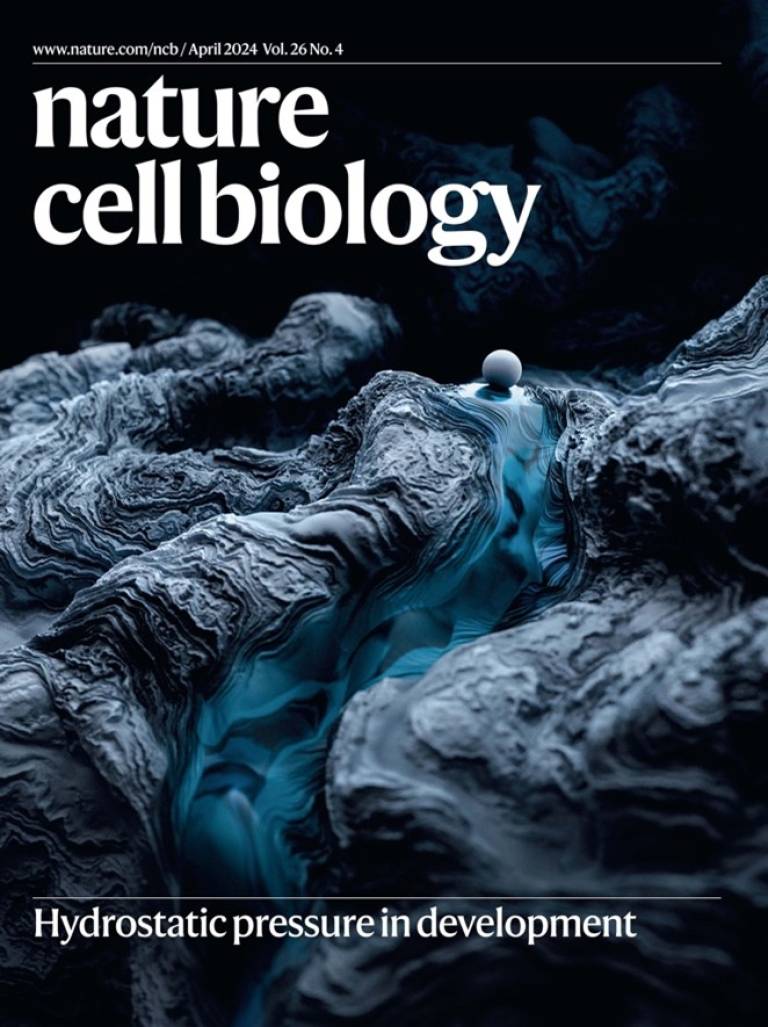Roberto Mayor and colleagues' work is represented on cover of Nature Cell Biology
24 April 2024
Roberto Mayor and co-authors publish new information on embryonic competence. Competence is the capacity of a tissue to respond to inductive signals during development, which has wide implications in the development of organs and tissue.


Roberto Mayor
Cell migration and differentation during development
This paper identifies for the first time the mechanism that controls embryonic competence. Competence is the capacity of a tissue to respond to inductive signals during development, and it has wide implications in the development of organs and tissue.
The research described in this publication explores the relationship between the Wnt and YAP proteins, and hydrostatic pressure. The name Wnt is a portmanteau of int and Wg, and stands for 'wingless-related integration site'. Wnts are secreted factors that regulate cell growth, motility, and differentiation during embryonic development. YAP protein signalling regulates Wnt activities, and YAP plays a key role during embryogenesis, as master regulators of growth, cell specification and survival. This paper shows that, during development, an increase in hydrostatic pressure leads to the exclusion of YAP from the nucleus, which is necessary for the activity of Wnt signalling.
Wnt is essential for neural crest induction, so the data in this paper show that the competence to induce neural crest cells by Wnt is controlled by hydrostatic pressure.
The full reference for this paper is: Alasaadi DN, Alvizi L, Hartmann J, Stillman N, Moghe P, Hiiragi T, Mayor R. (2024). Competence for neural crest induction is controlled by hydrostatic pressure through Yap. Nature Cell Biology. 26, 530-541, which is available at: https://www.nature.com/articles/s41556-024-01378-y
 Close
Close

